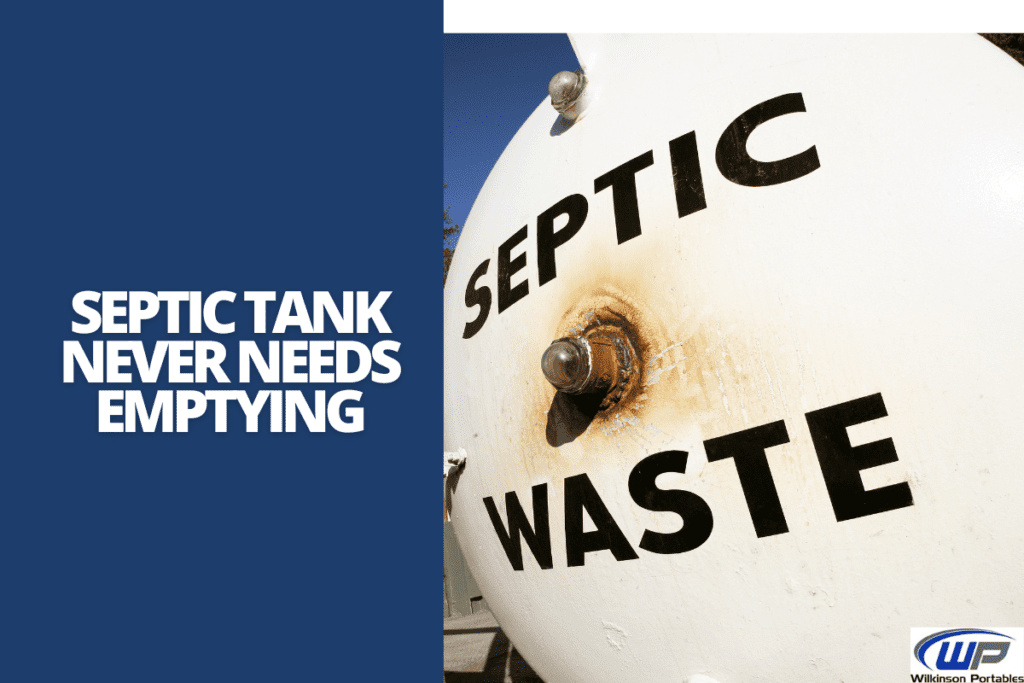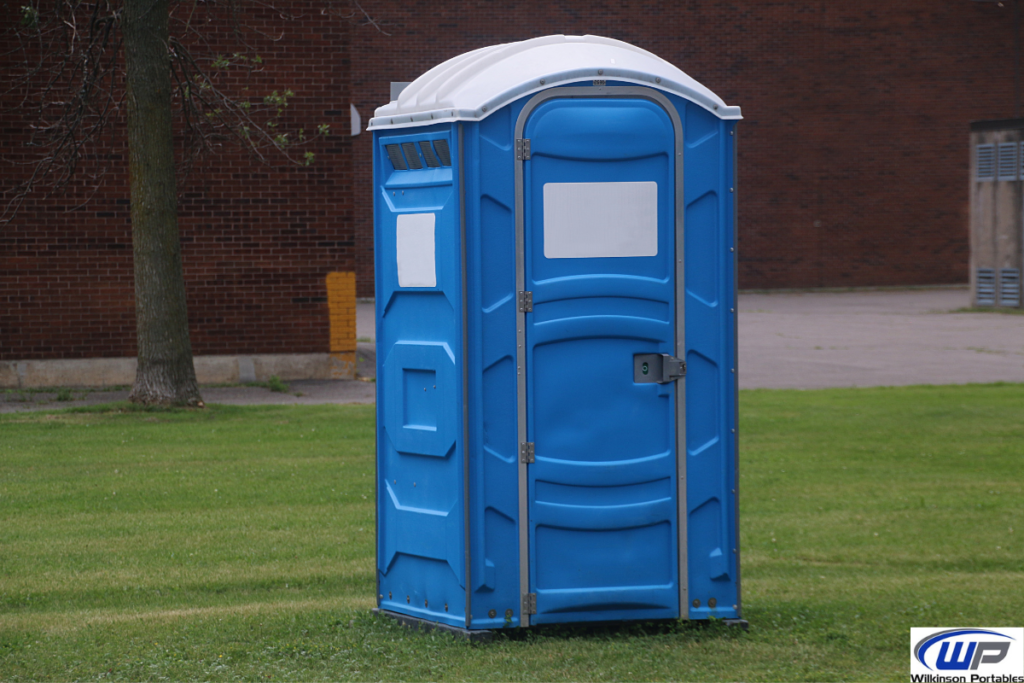In this article, we will explore the question of whether or not a septic tank really never needs emptying. We will delve into the facts and realities surrounding this topic and help you gain a better understanding of how septic tanks work. By the end, you will have a clearer picture of whether or not your septic tank needs regular maintenance and emptying. So, let’s dive in and debunk any myths surrounding septic tanks!

What is a septic tank?
A septic tank is an underground wastewater treatment system that is commonly used in rural areas and homes that are not connected to a centralized sewer system. It is designed to collect, treat, and dispose of wastewater from toilets, sinks, showers, and other household fixtures.
Components of a septic tank system
A typical septic tank system consists of three main components: the septic tank, the drainfield, and the soil. The septic tank is a watertight container that receives and stores wastewater. It is usually made of concrete, fiberglass, or plastic and is buried underground. The drainfield, also known as the leachfield or absorption field, is a series of pipes or trenches that distribute the treated wastewater into the soil. The soil acts as a natural filter, further treating the wastewater before it enters the groundwater.
How does a septic tank work?
The functioning of a septic tank system is relatively simple. Once wastewater enters the septic tank, it undergoes a series of processes to break down solid waste and separate it into three layers. The heaviest solids sink to the bottom of the tank and form a layer of sludge, while fats, oils, and greases float to the top and create a layer of scum. The middle layer, known as the effluent, consists of relatively clear liquid that can be further treated in the drainfield.
The common myth about septic tanks
The belief that septic tanks never need emptying
One of the common misconceptions about septic tanks is that they never need to be emptied or pumped out. This belief often arises from the idea that the waste magically disappears or breaks down entirely within the tank. However, this is far from the truth, and failing to regularly maintain a septic tank can lead to significant problems.
Understanding the reasons behind this belief
The misconception that septic tanks never need emptying may stem from various factors. Firstly, some individuals may have never experienced any obvious issues with their septic tank, leading them to believe that it never requires maintenance. Secondly, lack of awareness and education about septic tank systems can contribute to the perpetuation of this myth. Lastly, some unethical contractors may spread this belief to avoid the responsibility and cost of regular septic tank maintenance.
What actually happens in a septic tank?
Process of waste breakdown in a septic tank
Contrary to the myth, waste does not disappear or break down entirely in a septic tank. While bacteria present in the tank help decompose solids, the process is not 100% efficient. Over time, the accumulation of sludge and scum within the tank becomes inevitable.
Accumulation of sludge and scum
As mentioned earlier, the solid waste in a septic tank separates into two layers: sludge at the bottom and scum at the top. The sludge layer primarily comprises organic matter that cannot be broken down completely. Similarly, the scum layer consists of fats, oils, greases, and other substances that float. If left unchecked, these layers can build up to a point where they reduce the effective capacity of the tank and can cause various issues.
The importance of regular maintenance
Consequences of neglecting septic tank maintenance
Neglecting septic tank maintenance can have serious consequences. Over time, the accumulation of sludge and scum can lead to clogged pipes, blockages, slow drains, and backups. These issues can cause wastewater to back up into the house, leading to foul odors, unsanitary conditions, and potential health hazards.
Frequency of septic tank pumping
To avoid these problems, it is crucial to maintain a regular pumping schedule for septic tanks. The frequency at which a septic tank needs to be pumped depends on various factors, including household size, water usage, and the size of the tank. On average, septic tanks should be pumped every three to five years. However, it is advisable to consult with a septic tank professional to determine the specific pumping schedule for your system.
Factors affecting septic tank emptying
Household size and water usage
The size of your household and how much water you use on a daily basis directly impact the rate at which your septic tank fills up. Larger households with more residents typically generate more wastewater, leading to a faster filling of the tank. Similarly, excessive water usage, such as running multiple appliances simultaneously or having inefficient fixtures, can also result in a higher volume of wastewater entering the tank.
Type and size of septic tank
The type and size of the septic tank also play a role in determining how often it needs to be pumped. Different types of tanks have varying capacities and capabilities. Additionally, a larger tank can accommodate more waste before reaching its capacity, leading to less frequent pumping requirements.
Signs indicating the need for septic tank emptying
Odor and gurgling sounds
One of the telltale signs that your septic tank needs to be emptied is the presence of foul odors. If you consistently notice unpleasant smells in and around your property, it may indicate that the tank is full or nearing capacity. Additionally, gurgling sounds coming from drains or toilets can suggest that the pipes are blocked or the tank is full.
Slow drains and backups
Another indication that your septic tank needs attention is the occurrence of slow drains or frequent backups. If water takes longer than usual to drain from sinks, showers, or toilets, it could be a sign of a full or clogged septic tank. Backups occur when the tank is unable to handle the incoming wastewater, causing it to flow back into the house through drains or toilets.

The process of septic tank emptying
Hiring professional septic tank services
When it comes time to empty your septic tank, it is strongly recommended to hire professional septic tank services. These experts have the knowledge, experience, and equipment to safely and efficiently pump out the tank and dispose of the waste in accordance with local regulations.
Steps involved in emptying a septic tank
During the pumping process, the septic tank professional will locate and access the tank’s inlet and outlet ports. They will then insert a hose or vacuum truck into the tank to remove the accumulated sludge and scum. Once the tank is empty, the professional may inspect it for any potential issues or damage.
Proper septic tank maintenance practices
Using septic-safe products
To help maintain the health and efficiency of your septic tank system, it is crucial to use septic-safe products. Avoid flushing or pouring chemicals, medications, cleaning agents, and other non-biodegradable substances down the drain. These can disrupt the natural bacterial balance in the tank and impede the breakdown of waste.
Regular inspections and maintenance tasks
In addition to pumping out the tank, regular inspections and maintenance tasks are essential for the proper functioning of a septic tank system. This includes checking for leaks, monitoring the drainage area, and ensuring that all components are in good working condition. It is recommended to have a professional inspection at least once every three to five years, or as recommended by your local regulations.
Environmental impact of septic tanks
Groundwater contamination risks
Improperly maintained septic tanks pose a risk of contaminating groundwater, which is a valuable source of drinking water. If the tank is not regularly pumped, the buildup of sludge and scum can cause the effluent to overflow or seep into the surrounding soil, potentially contaminating nearby wells or water sources.
Efficient wastewater treatment alternatives
While septic tanks are a common and effective wastewater treatment option, there are alternative methods available that provide more efficient treatment and minimize environmental impact. These include aerobic treatment systems, constructed wetlands, and centralized sewer systems. These alternatives often require a larger investment upfront but offer better treatment outcomes and reduce the reliance on individual septic tank systems.
Conclusion
In conclusion, the belief that a septic tank never needs emptying is a common myth that can lead to serious consequences if left unaddressed. Septic tanks do require regular maintenance, including pumping out the accumulated sludge and scum, to ensure their proper functioning and to avoid backups, blockages, and groundwater contamination risks. By understanding the facts and realities of septic tank maintenance, homeowners can take the necessary steps to maintain a healthy and efficient wastewater treatment system. Remember, don’t fall for the myth – regular septic tank maintenance is key!

